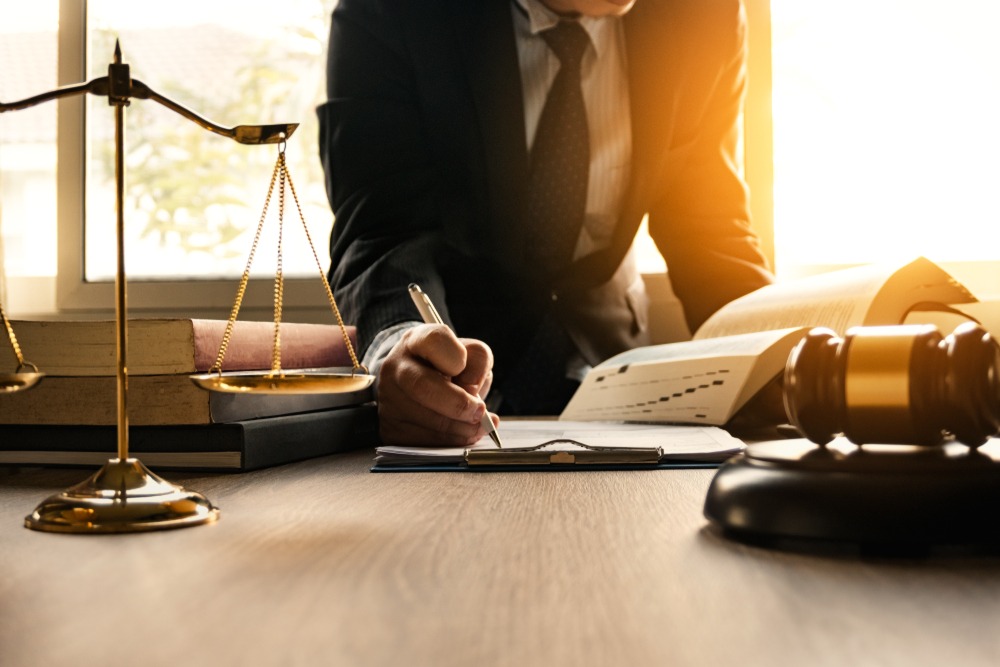Adding Persuasion & Power With Video
If a picture is worth a thousand words, a video is worth a million.
It is critically important to control the way evidence is presented during trial, and a well-made video will make your argument all the more dynamic. Video presentations speed up trial proceedings, and they appeal to the different learning styles of the judge, the jurors, and others present in the courtroom. A dynamic video makes it easier than ever to capture—and keep—the attention of jurors and judges, and it is a valuable way to enhance your argument.
Senior partner Michael Maggiano will give a presentation on the topic of videotaped depositions at the New Jersey Institute for Continuing Legal Education’s Central CLEFest. The presentation is scheduled for 10:50 a.m. on Monday, November 24, at the East Brunswick Hilton.
The Videotaped Deposition
“Black ink on white paper” is the most common presentation style for depositions—but is it really the best way to present evidence? A videotaped deposition, while it may open up your client to visual scrutiny that a transcript would not, has several important advantages.
The advantages of a videotaped deposition include the following:
- Accurate preservation of testimony: A videotaped deposition is the best way to truly and accurately preserve the witness’ testimony. Experts say that 97 percent of communication is nonverbal—so why omit the nonverbal parts of a witness’ testimony? Tone of voice, mannerisms, eye contact, attitude, facial movements, poise, and tone all tell an important story, and with a videotaped deposition, all of those nonverbal cues are automatically included.
- Accurate prediction of trial testimony: A videotaped deposition helps the attorney understand how the witness will act and testify during trial. A written deposition cannot give you proper insight into how the witness will conduct themselves on the stand.
- Elimination of vague or obscure answers: The “I don’t know” and “I don’t remember” responses are eliminated in videotaped depositions. When looking into the camera, witnesses tend to give straightforward answers and act like they would in front of a judge or jury. The “I don’t know” and “I don’t remember” responses turn into lengthy attempts to fudge or hedge answers in a regular deposition, which can turn a powerful witness into a liability. (Of course, there are certain situations in which the “I don’t know” and “I don’t remember” responses are perfectly fine. In these cases, a video deposition can still help an attorney get an idea of how the witness will behave in court.)
- Elimination of shenanigans: Videotaping a deposition eliminates the possibility of attorneys playing games or engaging in shenanigans. When the lawyer is on camera, he or she is much less likely to misbehave, and the witness is much less likely to look to their advocate for answers.
- Judge and juror appreciation: Judges and jurors appreciate the time-saving nature of a videotaped deposition, when compared to the reading of a lengthy deposition. Watching a deposition with your own eyes is far more interesting than having it read aloud—so long as the attorney makes the effort to make the video interesting. There is no use in a video deposition that is just as long and drawn-out as a traditional deposition.
- Increased intensity of impeachment: Courts have the discretion/authority to allow counsel to impeach prior deposition testimony by playing excerpts from the video deposition. This is a far more effective approach, and it significantly increases the intensity of impeachment.
- Visual representation of witnesses’ activities: Witnesses are often required to do certain things in a deposition, such as point to an area of their body, give a demonstration, draw sketches, or do something else entirely. A lawyer’s description of the witnesses’ activities in a written transcript is nowhere near as compelling as letting the judge and jurors see it for themselves on video.
- Visual utilization of evidence: Witnesses can show photographs, drawings, diagrams, maps, charts, medical illustrations, video and computer animations and reconstructions, anatomical drawings, models, and more in a videotaped deposition. Again, this importance of this visual connection among judges, jurors, and witnesses cannot be overstated.
- Enhanced preparation by attorneys:Lawyers are more prepared for a videotaped deposition than a traditional deposition—it’s simply a fact. A higher level of preparation will increase the likelihood of settling the case earlier or reveal earlier on that the case will need to go to trial.
- Getting the attention of the opposition: When you take a deposition by videotape, opposing lawyers realize you are serious about the litigation and trial of your case. Whether you are dealing with a civil or criminal case, a videotaped deposition shows the opposition you are putting in an all-out effort.
- Changing the atmosphere: A videotaped deposition tends to have a more formal, more intense, and more serious atmosphere than a traditional deposition. This formal atmosphere more closely resembles the courtroom atmosphere of trial.
There are a few rules in place regarding videotaped depositions. New Jersey Court Rule 4:14-2 states that the party seeking a videotaped deposition must serve the notice at least 10 days prior to the date of the deposition being sought. Court Rule 4:14-1 states that a videotaped deposition of a treating physician cannot be used at trial until 30 days after the physician has been provided with a copy of the videotape.
New Jersey Court Rule 4:16-1 states that a videotaped deposition may be used to contradict or impeach the testimony of the deponent as a witness as well as for “any other purpose permitted by the rules of evidence.” In other words, where the deposition testimony may be used as evidence, the videotape may also be used.
At the end of the day, a video deposition presents distinct challenges and opportunities for trial attorneys. The best way to ensure the success of a video deposition is to conduct the witness preparation on videotape (before the actual deposition takes place), which allows you time to give feedback and improve the witness’ demeanor on tape.

















